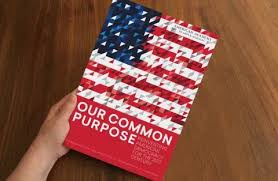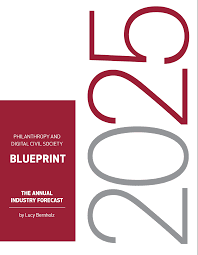
Our common purpose
from the American Academy of Arts & Sciences…Our Common Purpose: Reinventing American Democracy for the 21st Century, a report of the American Academy’s Commission on the Practice of
Democratic Citizenship, comes at a pivotal moment in the history of the
American experiment.
Creative but disorganised: why philanthropy won’t solve the polycrisis
by Barry Knight in Alliance Magazine…‘There are massive problems; climate, conflict, the economy are chief among them. Our international system for dealing collaboratively with any problem that crosses a border is out of date and needs to be rethought.’
Strategic foresight toolkit for resilient public policy
from OECD…..A Comprehensive Foresight Methodology to Support Sustainable and Future-Ready Public Policy
Playing with Time: Introducing a foresight practice to build hopeful futures through transformative stewardship
by Cat Tully in School of International Futures (SOIF)…My hope is that I inspire you to join in: to act, connect, support, and become part of a global movement toward meaningful change for the wellbeing of current and future generations. This is a creative exploration, a conversation, and a call to reshape our shared future. Let’s embark on this journey together.
Rolling out the doughnut
in Beshara Magazine…We talk to Leonora Grcheva of the Doughnut Economics Action Lab about how Kate Raworth’s innovative economic theory is being translated into sustainable practice in cities and regions across the world.

Philanthropy and digital civil society: Blueprint 2025
by Lucy Bernholz in Blueprint 2025…Philanthropy and Digital Civil Society: Blueprint is an annual industry forecast about the ways we use private resources for public benefit in the digital age. Each year, the Blueprint provides an overview of the current landscape, points to big ideas that matter, and directs your attention to horizons where you can expect some important breakthroughs in the coming year.
Futures Lab
in Futures Lab report in Horizon 2045…We look for evidence of the future that’s coming and in some cases is already here.
From risk to resilience: Wildfires and the insurance industry’s climate reckoning
Doug Parsons interviews Dr. Carolyn Kousky in America Adapts the Climate Change Podcast…Carolyn shares insights on how the industry can respond to these challenges by closing protection gaps, incentivizing resilience, and creating innovative solutions to build more climate-resilient communities. It’s a timely and critical conversation at the intersection of insurance, wildfires, and the future of climate adaptation.
China’s ageing population: A demographic crisis is unfolding for Xi
by Laura Bicker in BBC…Over the next decade, about 300 million people, who are currently aged 50 to 60, are set to leave the Chinese workforce. This is the country’s largest age group, nearly equivalent to the size of the US population.
Anthropocene under dark skies: The compounding effects of nuclear winter and overstepped planetary boundaries
by Florian Jehn in EGU…The analysis of global catastrophic events often occurs in isolation, simplifying their study. In reality, risks cascade and interact.
Climate models can’t explain what’s happening to Earth
by Zoë Schlanger in The Atlantic…Global warming is moving faster than the best models can keep a handle on.
Strategy 2030 mid-term review and forecast
by Solferino Academy…“We are too often still operating from fixed mindsets and with fixed responses rather than recognising the interconnected nature of issues we are facing”
Reasons for hope in 2025
by Suzette Brooks Masters in Fulcrum…My way of not giving in to despair and apathy amid all this uncertainty is to look for sources of hope, to find in uncertainty itself reasons for hope. Happily, once you look for the places where hope and imagination live, you find it in ample supply. As part of the research I conducted for Democracy Funders Network’s Imagining Better Futures for American Democracy report, I talked to dozens of visionaries who were imagining and creating new and better ways of being with one another, with nature, with technology, and with the planet. The final section of that paper, titled Inspiration, is my curated compilation of examples of what better futures could look like in real life and in the imagination. Whenever I feel the pull of pessimism, I turn back to those examples.

The incredible, world-altering ‘Black Swan’ events that could upend life in 2025
From Politico Magazine…15 futurists, foreign policy analysts and other prognosticators provide some explosive potential scenarios for the new year.
A food apocalypse is coming; There is no plan to feed Britain in a crisis
by James Rebanks in UnHerd…The answer is to be ready, with a more resilient and secure food system before something goes wrong. We need an inspired farming system that’s largely confined to our own island, and which we can rely upon in a crisis. There is no food security unless we can feed people locally in an emergency.
Certainty is boring
by Jeanette Bronee in her blog…We may never know exactly what to do to meet the future and its constantly changing reality, but aligning with what matters becomes our North Star. To avoid getting stuck on the hamster wheel of FUD (fear, uncertainty, and doubt), we must learn to pause more. These moments of pause allow us to reconnect with our intention and align with our strategy, giving us the courage to move forward with clarity and confidence. After all, change and growth are essential to life—that’s why certainty is boring.

